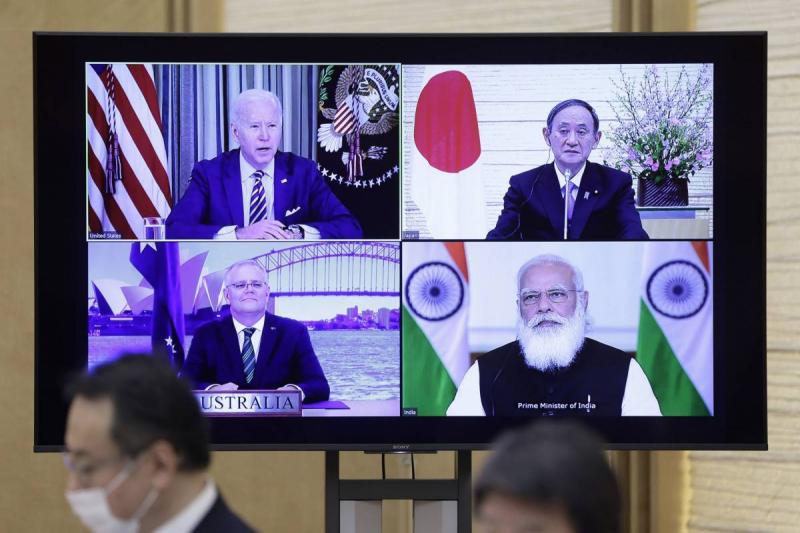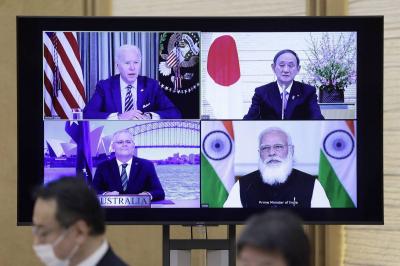The conflict between the United States and China may give India, which needs it, a boost to become a global technological hub, provided that the South Asian nation addresses its long-standing obstacles, including excessive bureaucracy and government inefficiency. A report released on Tuesday by the Heinrich Foundation, based in Asia and founded by American entrepreneur Merle Heinrich, stated that "the technological cold war between Washington and Beijing has led to a strategic decoupling, pushing manufacturing supply chains to shift to new locations, and India finds itself well-positioned to accommodate these supply chains."
According to the foundation, several factors currently work in India's favor, citing U.S. President Joe Biden's call for "China-free" supply chains in certain sectors, as well as India's membership in the Quad alliance with the United States, Australia, and Japan. Leaders of these four countries held their first summit earlier this month, partly to address concerns about Beijing's growing economic and military weight. It is noted that India and China engaged in violent clashes along their disputed border in the Himalayas in 2020, despite efforts to ease tensions this year that led to both armies withdrawing their forces in February.
### Shift Toward India
Tech giants like Apple, Amazon, and Samsung Electronics, which relied on China for years, are shifting production to India and Southeast Asia, a move accelerated by rising tensions between Washington and Beijing. The pandemic has expedited this transition, as companies benefit from new production incentive programs in India, a massive working base, and a rapidly growing local market for devices and internet services. In this context, Alex Capri, a Singapore-based researcher who authored the report, stated, "Everyone I've talked to in the tech sector is moving things out of China, anything they consider sensitive." He noted that India is also looking to reduce its dependence on China.
The report mentioned that New Delhi will also need to address issues that have hindered manufacturing growth, adding that excessive regulations and taxes, and a lack of coordination between the central government and the states have deterred investors. The report further noted that India’s path to becoming a technology hub would depend on its ability to develop smartphone manufacturing, pointing out that China still holds a leading position in this industry. The Heinrich Foundation stated that India could pressure Washington to persuade major chip makers, such as Taiwan Semiconductor Manufacturing Co., to open certain factories in the South Asian nation. Capri said that India faces many uncertainties it could address, adding, "But more than ever, people are saying, if India is going to do this, it has to do it now."




